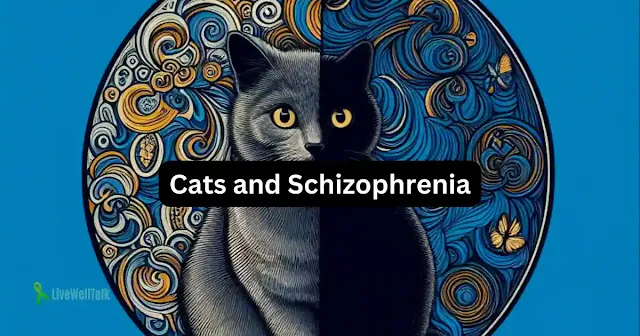For centuries, the enigmatic connection between cats and schizophrenia has captured the imagination, sparking both fear and fascination. Recent research, centered around the microscopic parasite Toxoplasma gondii, has shed light on potential links, though the complexity of the relationship remains far from a definitive cause-and-effect scenario.
Emerging evidence hints at gender differences, with the potential link being stronger in females. Toxoplasma infection induces inflammation in the brain and alters dopamine levels, two processes implicated in schizophrenia development.
Cats and Schizophrenia
Delving into the Evidence
The linchpin of this investigation is Toxoplasma gondii, often found in cat feces. While generally harmless for healthy individuals, the parasite has been associated with various neuropsychiatric conditions, including schizophrenia. Studies suggest an intriguing correlation between cat ownership, especially during childhood, and an increased risk of schizophrenia-related disorders.Emerging evidence hints at gender differences, with the potential link being stronger in females. Toxoplasma infection induces inflammation in the brain and alters dopamine levels, two processes implicated in schizophrenia development.
Unraveling the Mystery
It's essential to grasp that correlation does not equal causation. Schizophrenia is a multifaceted disorder influenced by genetics, environmental stressors, and prenatal complications. Learn more here on → Schizophrenia: Symptoms, causes, and treatments.The research on the toxoplasma-schizophrenia connection is ongoing, necessitating more studies to comprehend the exact mechanisms at play.
It's vital to remember that while potential risks exist, cats can also be a source of companionship, emotional support, and stress reduction, positively impacting mental well-being.
Potential Mechanisms
Hypotheses abound regarding how toxoplasma might influence schizophrenia risk, including neuroinflammation, dopamine dysregulation, and immune system modulation. Understanding these mechanisms can pave the way for targeted interventions and preventive measures.Living with Cats and Mental Health
For those concerned about the potential risks, maintaining open communication with healthcare professionals is crucial. Implementing good hygiene practices, such as wearing gloves during gardening or cat litter changes, minimizes exposure to toxoplasma. Individuals with weakened immune systems or pregnant women might consider alternative pets.
It's vital to remember that while potential risks exist, cats can also be a source of companionship, emotional support, and stress reduction, positively impacting mental well-being.


Comments
Post a Comment